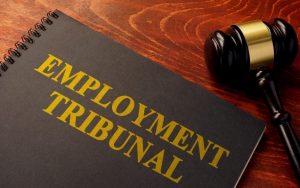
Is your answer to this question, ‘the state’? If it is, then you are wrong. Parliament provides protective employment rights, but it is individual workers and trade unions who have the primary role in enforcing those rights.
Employment rights are provided through employment legislation such as the Employment Rights Act 1996. Other employment rights have been agreed through European Union directives and then made into national law through Regulations. Further rights are contained in individual employment contracts and collective agreements. Access to these rights varies depending on whether you are an employee or a worker. Ultimately, employment rights are worth nothing if they are not regulated and enforced. So, who regulates and enforces these rights? The current system is split between workers and the Government. It is fragmented and very difficult for workers to know where they should go for help if they believe their rights are being infringed or want information on their rights.
Government Regulation
There are various enforcement bodies set up to protect workers from exploitation, including;
- Health and Safety Executive (HSE), for working time, including maximum weekly working hours.
- Local authorities for lower level health and safety breaches.
- HMRC for enforcing payment of minimum wage.
- Gangmasters and Labour Abuse Authority (GLAA) for labour exploitation within modern slavery
- Pensions Regulator for pensions
- Employment Agency Standards Inspectorate (EAS) enforces employment agency legislation (except Agency Worker Regulations)
- Independent Anti-Slavery Commissioner
- Equality and Human Rights Commission investigates discrimination and regulates Gender-pay Gap Reporting .
- Rural Payments Agency regulates agency workers in agriculture, horticulture, shellfish gathering or associated processing and packaging.
The Director of Labour Market Enforcement, currently Matthew Taylor is responsible for setting priorities for HMRC National Minimum Wage, GLAA and EAS Inspectorate.
Single Labour Market Enforcement Body
Consultation on the creation of a single labour market enforcement body closed on 6th October 2019. The Government has proposed the creation of a single labour market enforcement body to bring all the enforcement agencies together under one organisation, enforce holiday pay and tribunal awards, providing a single brand so that workers know where to go for help on their employment rights. However, the Government will not take on the enforcement of all employment rights. The vast majority will still require action by individuals through the Employment Tribunal (ET).
Employment Tribunals
Despite the existence of these enforcement bodies, the majority of employment rights are enforced by individuals and trade unions through the ET. ET’s have jurisdiction to hear a vast range of statutory and some contractual claims. They are governed by the Employment Tribunals Act 1996 (ETA 1996) and The Employment Tribunals (Constitution and Rules of Procedure) Regulations 2013 (ET Rules 2013).
The important role of ET’s was emphasised by the Supreme Court in R(Unison) v Lord Chancellor (the case that abolished Employment Tribunal Fee’s). The Court said that ET’s are an essential part of enforcing protective employment legislation. Parliament provided them to create an easily accessible system of adjudication for hearing most employment claims. The Court went even further, saying that employment rights have a special position and Parliament’s intention when legislating for protective employment rights is not only to provide benefits to workers, but also because those rights are in the public interest.
ET claims deliver parliaments promises through protective employment laws which are made ‘to regulate, support and restrain the power of management… and Parliament expects those procedures to ‘work fairly and properly’ in the workplace. Employers have a role to play in keeping the promises of Parliament by adhering to their statutory obligations. Where they do not do so, individuals MUST be able to bring their claims before the ET otherwise employers will no longer adhere to legislative provisions, and as the superior party in the employment relationship will always prevail so ‘……the possibility of claims being brought by employees whose rights are infringed must exist, if employment relationships are to be based on respect for those rights’.




